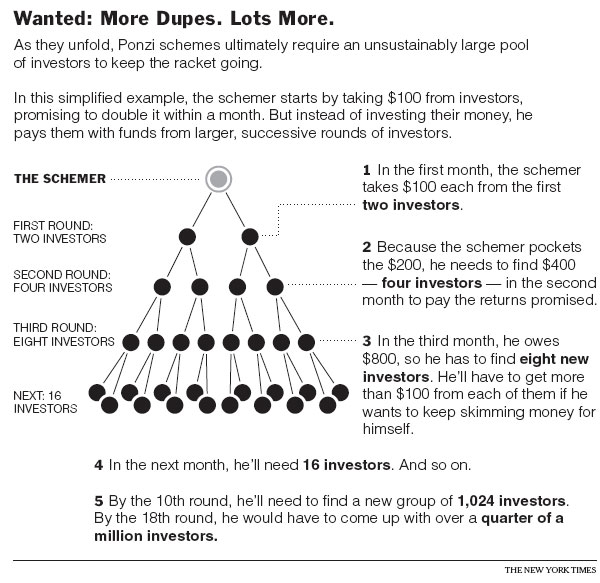A Ponzi scheme is a fraudulent investment scam that promises high rates of return with little risk to investors. The Ponzi scheme generates returns for early investors by acquiring new investors. It is similar to a pyramid scheme in that both are based on using funds from new investors to pay previous backers. Both Ponzi and pyramid schemes eventually hit bottom when the flow of new investors runs out and there is not enough money to go around.
In 2008, Bernard Madoff was convicted of running a Ponzi scheme that falsified trading reports to show that a client was making a profit on investments that didn't exist. 10 years later, it was Bitconnect that collapsed when the cryptocurrency BCC was trading for up to $477 on their website.
Regardless of the technology used in the Ponzi scheme, most share similar characteristics:
- A guaranteed promise of high returns with little risk
- A steady stream of returns regardless of market conditions
- Secret or insufficiently transparent investment strategies
- Clients who have difficulty withdrawing their money
As Bitcoin is an entirely decentralised asset and operates using the transparency of blockchain technology, Bitcoin cannot be a Ponzi Scheme. Due to the nature of blockchain, anyone at any time can verify all transactions made on the Bitcoin network, dissimilar to a Ponzi Scheme where "investments" are shrouded in secrecy.
While Bitcoin and other cryptocurrencies are not Ponzi Schemes themselves, that doesn't mean that Ponzi Schemes cannot use Bitcoin to lure in potential investors. Beware of any investment "firms" looking to invest in crypto for you, particularly if they're claiming to provide inflated rates of returns. A return on investment of more than 30% is a red flag for a sharp investor.
